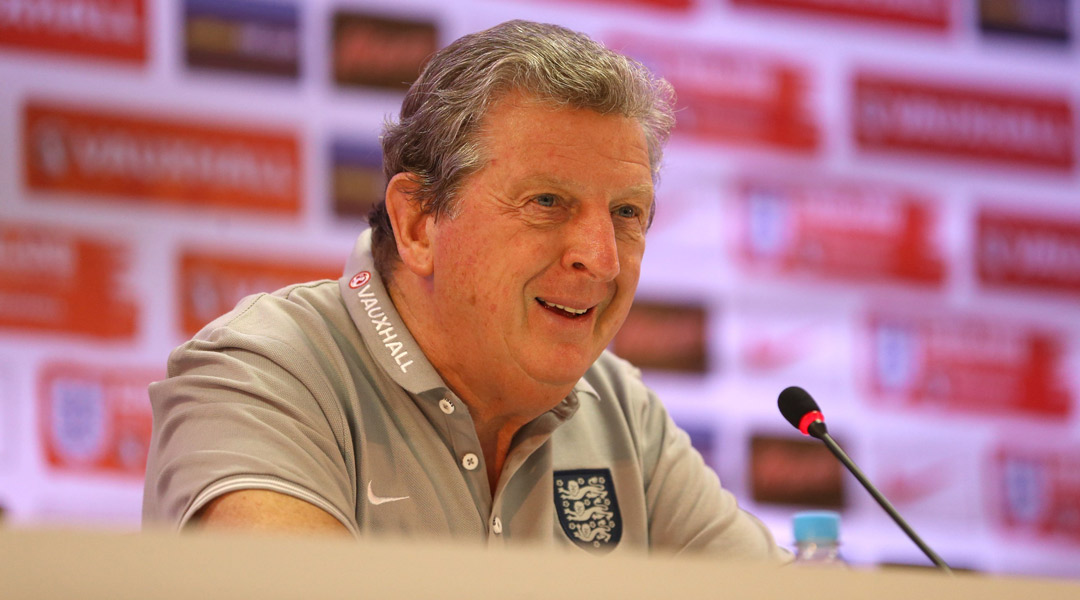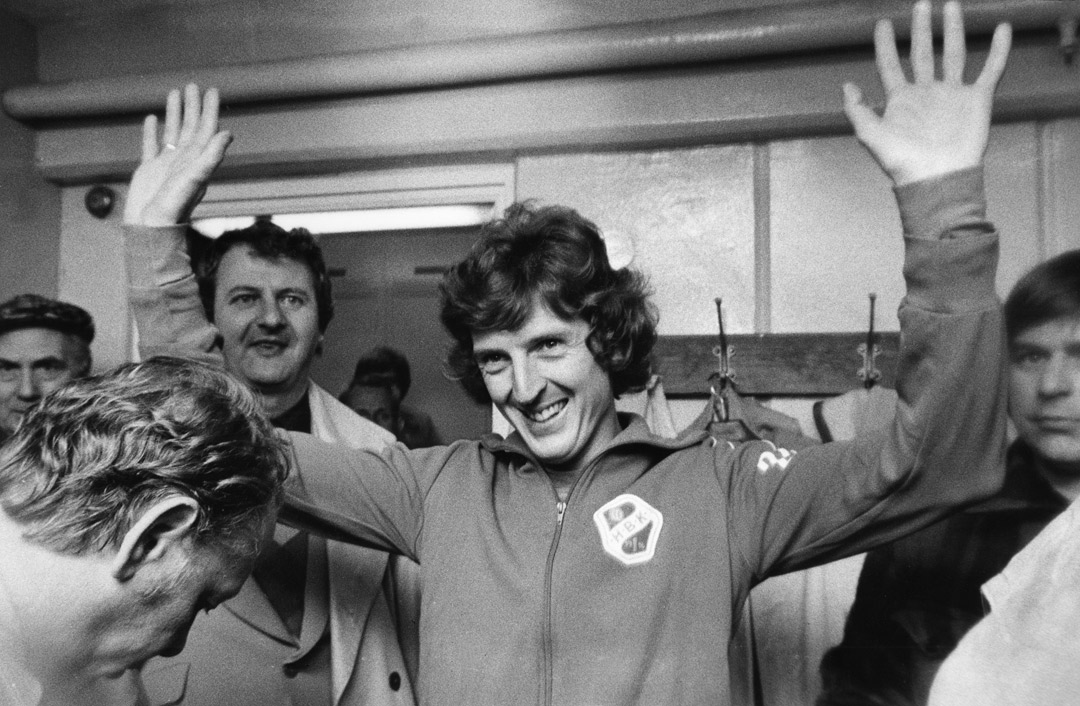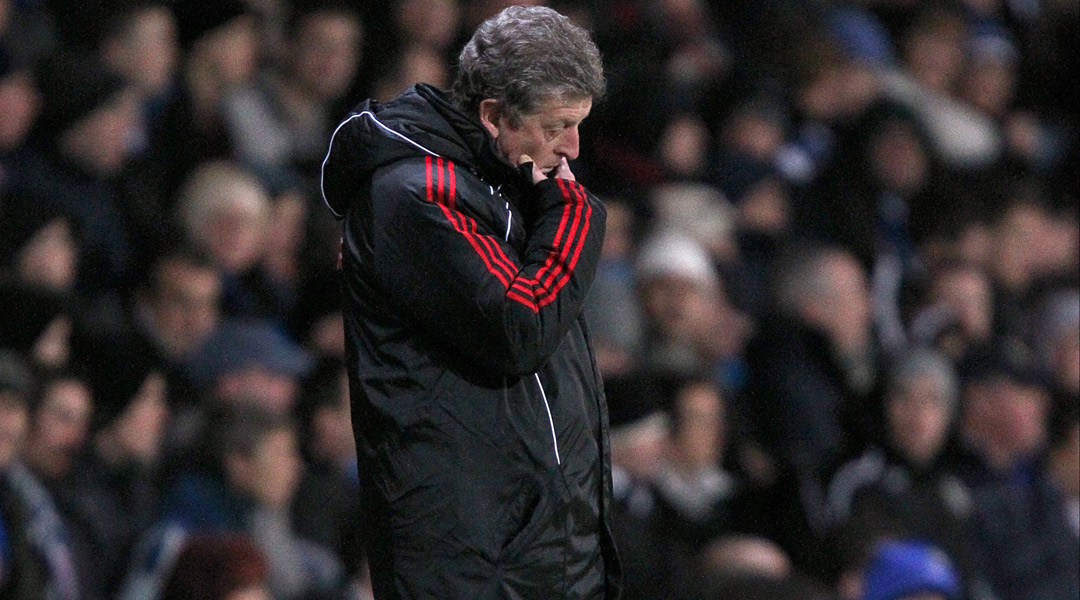The Roy Hodgson story: Elks, owls, erotica and headaches
Back of the Net’s John Foster delves into the England manager’s back pages...

There was widespread surprise when the FA appointed Roy Hodgson to be Fabio Capello’s successor as England boss. Hodgson had been considered an outsider for the post, largely thanks to an unhappy six-month stint in charge of Liverpool, when alienated Reds supporters were forced with with poor results and misjudged transfer dealings, notably giving Christian Poulsen a hoof bonus, and awarding Paul Konchesky the naming rights to Anfield.
But Liverpool was a misstep in what has otherwise been a long and impressive managerial career. It began in 1976, when, aged just 29, Hodgson moved to Sweden to coach Halmstads. Like most Swedish clubs, Halmstads had for many years played in a loose 3-4-3 formation, which had been developed by forest trappers as the best way to hunt valuable elk.
Hodgson revolutionised the club’s tactics with a controversial new zonal marking system, instigated a rigid 4-4-2, and, most shockingly of all, released Halmstads’ beloved elks. The new approach paid instant dividends, as Halmstads won the Allsvenskan in his first season in charge. It should be remembered, however, that the Allsvenskan in the 1970s was a three-team league that played a 10-day season, timed to coincide with the Swedish summer.

Another title with Halmstads followed in 1979, before Hodgson endured a chastening four-month spell at financially-stricken Bristol City, combining the manager’s job with that of physio, bus driver, and, occasionally, goalkeeper. Hodgson would later admit that he had taken the job without first checking if the side had any players, an oversight which proved to be his undoing.
He returned to Sweden in 1983, winning five consecutive league championships with Malmö, before trying his luck in Switzerland with Neuchâtel Xamax. Here, he recorded a famous victory over an underprepared Real Madrid, who believed their opponents to be an over-the-counter headache remedy, and impressed the Swiss FA sufficiently to be given the national team job in 1992.
Swisscipline
Under Hodgson’s guidance, Switzerland qualified for USA '94 and Euro '96, their first major tournament appearances. Key to their success was positional discipline, which Hodgson instilled by tying his players together with lengths of rope on the training field. This innovation was widely praised, despite an incident at the team hotel when Kubilay Türkyilmaz fell off a balcony, dragging the unfortunate Marc Hottiger with him.
Get FourFourTwo Newsletter
The best features, fun and footballing quizzes, straight to your inbox every week.
Hodgson’s achievements with Switzerland led to him being offered the Inter Milan job in 1995. However, his time at the San Siro was mixed, and he received particular criticism for offloading Roberto Carlos, who, mistakenly in hindsight, he believed to be an elk. He left his post after losing the 1997 UEFA Cup Final to Schalke, having made the tactical blunder of playing for penalties against a German side.
After a disappointing stint with Blackburn Rovers, Hodgson returned to Inter as caretaker, where he won plaudits for tidying the team’s broom cupboard and repairing the espresso machine. He then went back to Switzerland, where he was credited with overseeing Grasshoppers’ comeback after they had been dormant for 17 years. Amid criticism that this was typical behaviour for hemipterae and nothing to do with him or his methods, Hodgson was on the move again after a year, to FC Copenhagen.
Following a championship-winning season at Copenhagen and a brief sojourn at Udinese, Hodgson spent two unsuccessful years in charge of the United Arab Emirates. He blamed this uncharacteristic failure on being unable to use his favoured team-bonding techniques of malt whisky, vintage French erotica, and democracy.
Determined to coach in every country in Scandinavia as a result of a drunken bet, Hodgson had a forgettable stint in charge of Viking Stavanger, before moving on to coach Finland. He left after failing to qualify for Euro 2008, and, unable to find a job in Reykjavik, took the managerial reins at Fulham, commonly nicknamed 'the Iceland of London'.
Pride of the Cottage
His time at Fulham was highly successful, as the Cottagers enjoyed a run to the Europa League final in 2010 before falling to Atlético Madrid. En route, Hodgson’s unfancied side beat Basel, Juventus, Shakhtar Donetsk, Wolfsburg, and Hamburg, breaking the record for the number of times in a single season that a team can be described as ‘plucky’.
He then endured a turbulent time at Liverpool, which saw him bitterly criticised for picking players out of position, like Raul Meireles on the wing and Alberto Aquilani at Juventus. His sacking after six months came as no surprise, but a swift return to management with West Bromwich Albion followed. This impressive 18-month spell was characterised by excellent results away from home, widely regarded as a deliberate strategy to rub Liverpool fans’ noses in it.

However, his unexpected appointment as England manager on May 1, 2012 was greeted with howls of derision from the press, who had been campaigning for the job to be given to hangdog quote-merchant Harry Redknapp. One tabloid mocked Hodgson’s speech impediment, while others chose to portray him as an owl, owing to his preference for sleeping upside-down in barns, a habit picked up from his time in Sweden.
Only time will tell if the press find a new scapegoat, ideally a German one, in time to reduce the torrent of criticism that is set to be aimed Hodgson’s way. It looks like being an uphill task, however, with a number of journalists pleading on the eve of the tournament that it’s not too late to get Redknapp in to help with things like grit, desire, passion, wheeling, and, of course, dealing.
